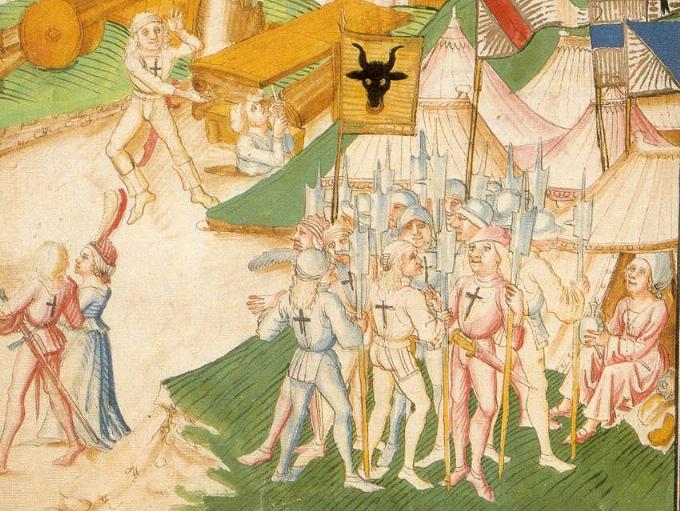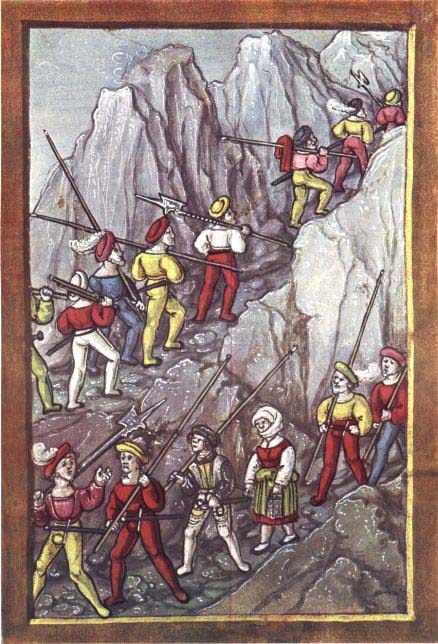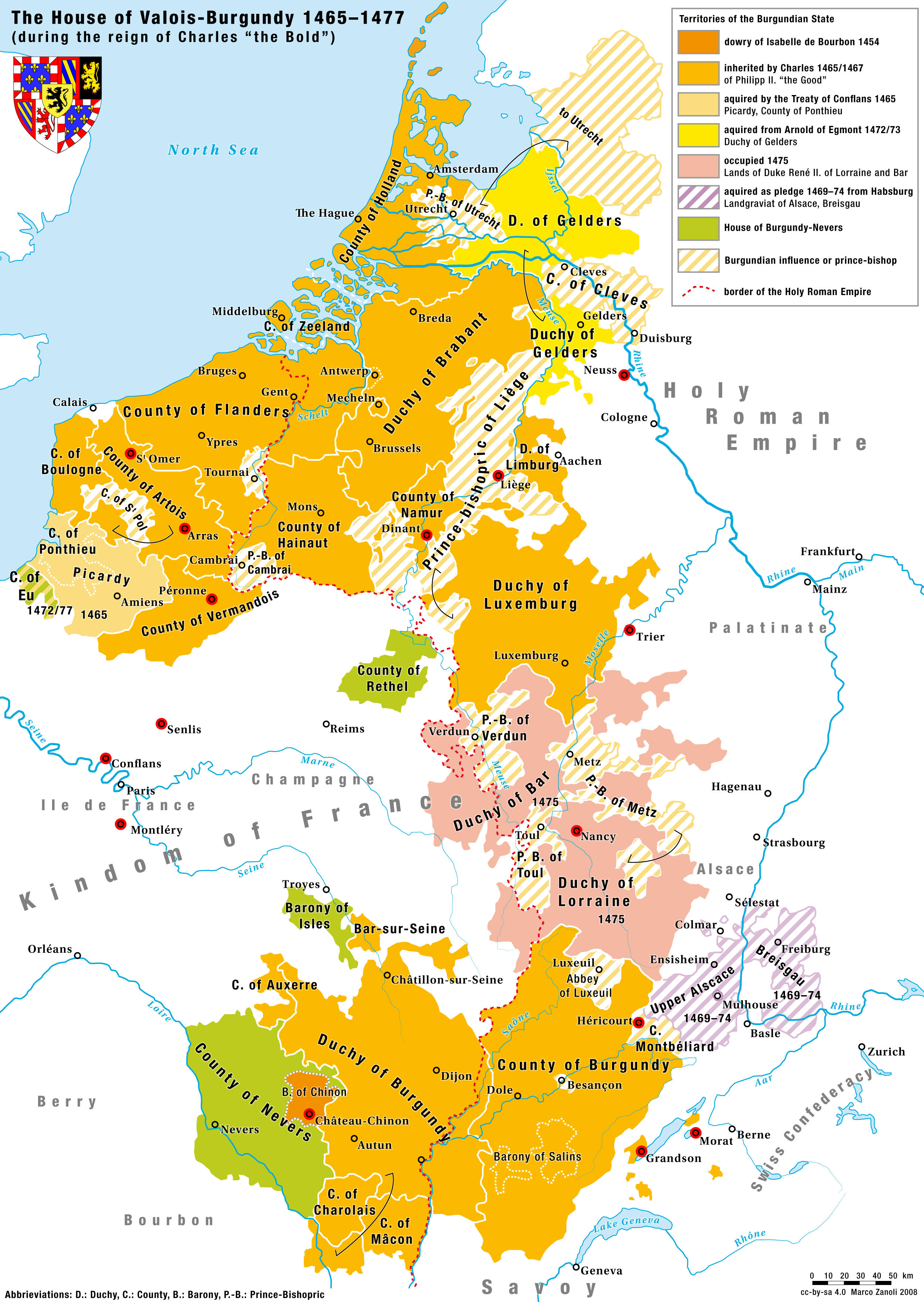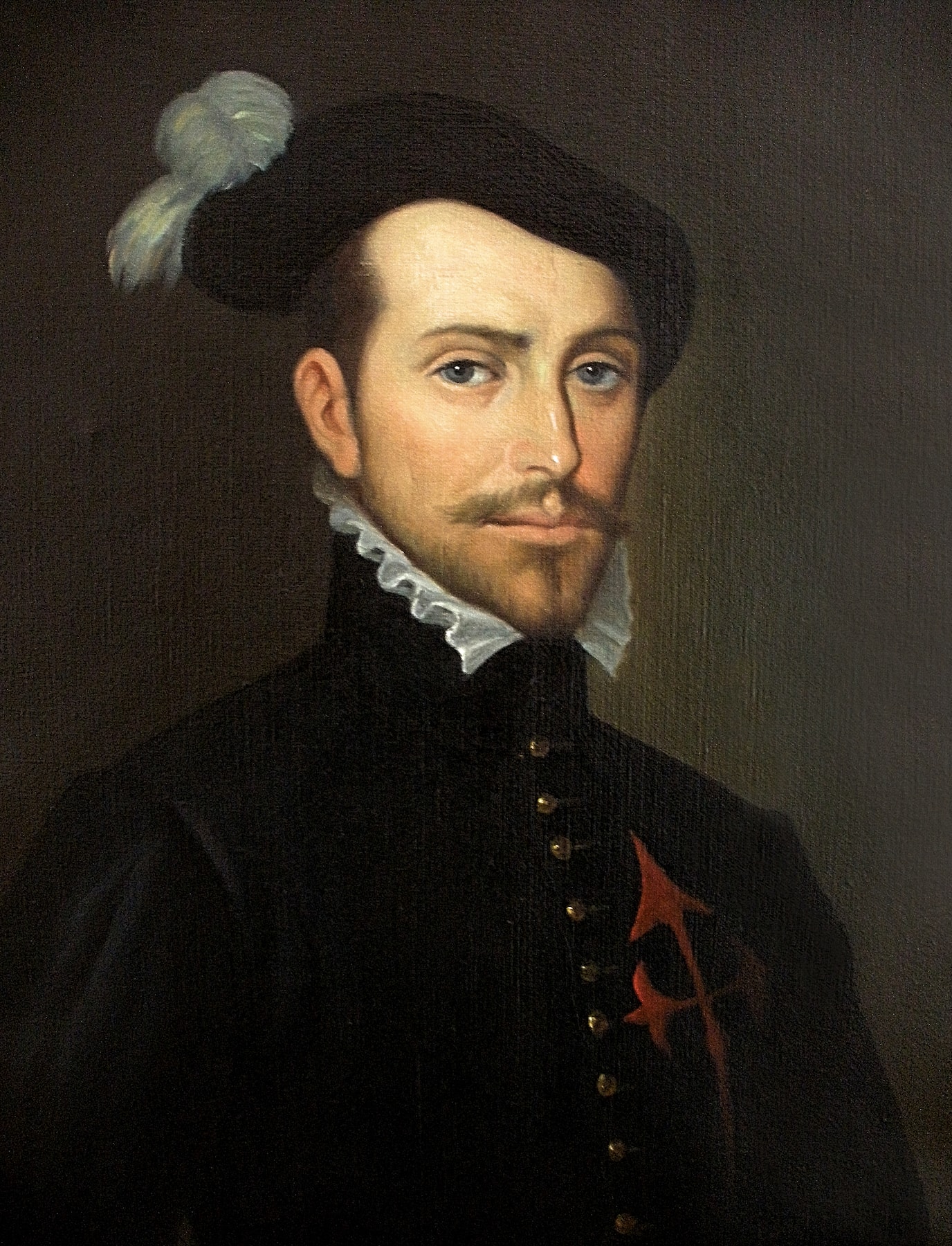|
Diebold Schilling Der Ältere
Diebold Schilling the Elder (c. 1445 – 1485) was the author of several of the Swiss illustrated chronicles, the ''Berner Schilling'' of 1483, the ''Spiezer Schilling'' (1480s), and the ''Zürcher Schilling'' of 1484. He worked in Lucerne as a chancellor. In 1460, he moved to Berne for a post as a scribe to the city council. He was to some extent hostile towards the European powers who needed a lot of Swiss mercenaries: this could only bring internal troubles after the Burgundy wars. See also *Diebold Schilling the Younger *Swiss illustrated chronicles Several illustrated chronicles were created in the Old Swiss Confederacy in the 15th and 16th centuries. They were luxurious illuminated manuscripts produced for the urban elite of Bern and Lucerne, and their copious detailed illustrations allow a ... External linksBerne chronicle facsimile [...More Info...] [...Related Items...] OR: [Wikipedia] [Google] [Baidu] |
Swiss Illustrated Chronicles
Several illustrated chronicles were created in the Old Swiss Confederacy in the 15th and 16th centuries. They were luxurious illuminated manuscripts produced for the urban elite of Bern and Lucerne, and their copious detailed illustrations allow a unique insight into the politics and daily life of late medieval Switzerland on the eve of the Reformation. The most important of these chronicles are the works of the two Diebold Schillings, their luxurious execution, as well as their content reflecting the growing confidence and self-esteem of the leaders of the confederacy after their spectacular successes in the Burgundian Wars. * 1423 Konrad Justinger's chronicle (Bern) the original was lost, but a copy of the text survives in Jena. * 1470 the " Tschachtlanchronik" by Bendict Tschachtlan und Heinrich Dittlinger (Bern, now kept in Zürich) * Diebold Schilling the Elder, Bern: **1483 the " Berner Schilling", three volumes, covering the time from the foundation of Bern up to and includ ... [...More Info...] [...Related Items...] OR: [Wikipedia] [Google] [Baidu] |
Berner Schilling
The ''Berner Schilling'' (or ''Amtliche Chronik'', also ''Grosse Burgunderchronik'', ''Great Burgundy chronicle'') is a chronicle of Diebold Schilling the Elder of Berne (1480s), covering the history of the Old Swiss Confederacy up to the Burgundian Wars. See also * Swiss illustrated chronicles External links Facsimile Swiss illustrated chronicles Schilling Schilling may refer to: * Schilling (unit), an historical unit of measurement * Schilling (coin), the historical European coin * Austrian schilling, the former currency of Austria * A. Schilling & Company, an historical West Coast spice firm acquir ... 1480s books {{Switzerland-stub ... [...More Info...] [...Related Items...] OR: [Wikipedia] [Google] [Baidu] |
Spiezer Schilling
''Spiezer Schilling'' or ''Spiezer Chronik'' is a chronicle by Diebold Schilling the Elder of Bern (1480s), created after the '' Berner Schilling'' by the same author. See also * Swiss illustrated chronicles Several illustrated chronicles were created in the Old Swiss Confederacy in the 15th and 16th centuries. They were luxurious illuminated manuscripts produced for the urban elite of Bern and Lucerne, and their copious detailed illustrations allow a ... References External links Digital scans on e-codices Swiss illustrated chronicles {{Manuscript-stub ... [...More Info...] [...Related Items...] OR: [Wikipedia] [Google] [Baidu] |
Zürcher Schilling
''Zürcher Schilling'' (or ''Grosse Burgunderchronik'', ''Great Burgundy Chronicle'') is the latest chronicle of Diebold Schilling the Elder of Bern (1484), treating the Burgundian Wars. It is kept in the central library in Zürich. See also * Swiss illustrated chronicles Several illustrated chronicles were created in the Old Swiss Confederacy in the 15th and 16th centuries. They were luxurious illuminated manuscripts produced for the urban elite of Bern and Lucerne, and their copious detailed illustrations allow a ... Swiss illustrated chronicles 1484 books {{Switzerland-stub ... [...More Info...] [...Related Items...] OR: [Wikipedia] [Google] [Baidu] |
Lucerne
Lucerne ( , ; High Alemannic German, High Alemannic: ''Lozärn'') or Luzern ()Other languages: gsw, Lozärn, label=Lucerne German; it, Lucerna ; rm, Lucerna . is a city in central Switzerland, in the Languages of Switzerland, German-speaking portion of the country. Lucerne is the capital of the canton of Lucerne and part of the Lucerne (district), district of the same name. With a population of approximately 82,000 people, Lucerne is List of cities in Switzerland, the most populous city in Central Switzerland, and a nexus of economics, transportation, culture, and media in the region. The city's urban area consists of 19 municipalities and towns with an overall population of about 220,000 people. Owing to its location on the shores of Lake Lucerne (german: Vierwaldstättersee) and its outflow, the river Reuss (river), Reuss, within sight of the mounts Pilatus (mountain), Pilatus and Rigi in the Swiss Alps, Lucerne has long been a destination for tourists. One of the city's landm ... [...More Info...] [...Related Items...] OR: [Wikipedia] [Google] [Baidu] |
Berne
german: Berner(in)french: Bernois(e) it, bernese , neighboring_municipalities = Bremgarten bei Bern, Frauenkappelen, Ittigen, Kirchlindach, Köniz, Mühleberg, Muri bei Bern, Neuenegg, Ostermundigen, Wohlen bei Bern, Zollikofen , website = www.bern.ch Bern () or Berne; in other Swiss languages, gsw, Bärn ; frp, Bèrna ; it, Berna ; rm, Berna is the ''de facto'' capital of Switzerland, referred to as the "federal city" (in german: Bundesstadt, link=no, french: ville fédérale, link=no, it, città federale, link=no, and rm, citad federala, link=no). According to the Swiss constitution, the Swiss Confederation intentionally has no "capital", but Bern has governmental institutions such as the Federal Assembly and Federal Council. However, the Federal Supreme Court is in Lausanne, the Federal Criminal Court is in Bellinzona and the Federal Administrative Court and the Federal Patent Court are in St. Gallen, exemplifying the federal nature of the Confederation. ... [...More Info...] [...Related Items...] OR: [Wikipedia] [Google] [Baidu] |
Swiss Mercenaries
The Swiss mercenaries (german: Reisläufer) were a powerful infantry force constituted by professional soldiers originating from the cantons of the Old Swiss Confederacy. They were notable for their service in foreign armies, especially among the military forces of the Kings of France, throughout the Early Modern period of European history, from the Late Middle Ages into the Renaissance. Their service as mercenaries was at its peak during the Renaissance, when their proven battlefield capabilities made them sought-after mercenary troops. There followed a period of decline, as technological and organizational advances counteracted the Swiss' advantages. Switzerland's military isolationism largely put an end to organized mercenary activity; the principal remnant of the practice is the Pontifical Swiss Guard at the Vatican. Ascendancy During the Late Middle Ages, mercenary forces grew in importance in Europe, as veterans from the Hundred Years War (1337–1453) and other confl ... [...More Info...] [...Related Items...] OR: [Wikipedia] [Google] [Baidu] |
Burgundy Wars
The Burgundian Wars (1474–1477) were a conflict between the Burgundian State and the Old Swiss Confederacy and its allies. Open war broke out in 1474, and the Duke of Burgundy, Charles the Bold, was defeated three times on the battlefield in the following years and was killed at the Battle of Nancy in 1477. The Duchy of Burgundy and several other Burgundian lands then became part of France, and the Burgundian Netherlands and Franche-Comté were inherited by Charles's daughter, Mary of Burgundy, and eventually passed to the House of Habsburg upon her death because of her marriage to Maximilian I, Holy Roman Emperor. Background The dukes of Burgundy had succeeded, over a period of about 100 years, in establishing their rule as a strong force between the Holy Roman Empire and France. The consolidation of regional principalities with varying wealth into the Burgundian State brought great economic opportunity and wealth to the new power. In fact, a deciding factor for many elites ... [...More Info...] [...Related Items...] OR: [Wikipedia] [Google] [Baidu] |
Diebold Schilling The Younger
Diebold Schilling the Younger (before 1460 - 3 November 1515(?)) was the author of the "Luzerner Schilling", one of the Swiss illustrated chronicles, which he presented to the city council of Lucerne on 15 January 1513 (but which remained incomplete). He was the nephew of Diebold Schilling the Elder of Bern. The younger Diebold was a somewhat scandalous figure, not unlike his father Hans, brother to the elder Diebold, an adventurer who had sought his fortune at the court of Matthias Corvinus, and returned destitute in 1488. Diebold was a secretary in Lucerne from 1479, and received the priesthood in 1481. His behaviour was so unpriestly, however, that the city council locked him into the tower in 1487, where he remained imprisoned for two years before he was released on parole of exhibiting more appropriate behaviour in the future. After his release he was soon back to his old ways, and after he had killed a man after a tavern brawl, he was fined and obliged to read a mass for his ... [...More Info...] [...Related Items...] OR: [Wikipedia] [Google] [Baidu] |
Swiss Chroniclers
Swiss may refer to: * the adjectival form of Switzerland *Swiss people Places *Swiss, Missouri * Swiss, North Carolina *Swiss, West Virginia *Swiss, Wisconsin Other uses *Swiss-system tournament, in various games and sports *Swiss International Air Lines **Swiss Global Air Lines, a subsidiary *Swissair, former national air line of Switzerland *.swiss alternative TLD for Switzerland See also *Swiss made, label for Swiss products *Swiss cheese (other) *Switzerland (other) *Languages of Switzerland, none of which are called "Swiss" *International Typographic Style, also known as Swiss Style, in graphic design *Schweizer (other), meaning Swiss in German *Schweitzer, a family name meaning Swiss in German *Swisse Swisse is a vitamin, supplement, and skincare brand. Founded in Australia in 1969 and globally headquartered in Melbourne, and was sold to Health & Happiness, a Chinese company based in Hong Kong previously known as Biostime International, in ... [...More Info...] [...Related Items...] OR: [Wikipedia] [Google] [Baidu] |
1445 Births
Year 1445 ( MCDXLV) was a common year starting on Friday (link will display the full calendar) of the Julian calendar. Events January–December * October 10 – Battle of Mokra: The Albanian forces under Skanderbeg defeat the Ottoman forces (Pope Eugene IV raises a hymn of praise, that Christendom has been provided with a new defender, after he hears of the battle). Date unknown * The Portuguese set up their first trading post ( ''Feitoria'') in Africa, on the island of Arguin. * Portuguese explorer Dinis Dias discovers the Cap-Vert, on the western coast of Africa. * Battle of Gomit: Emperor Zara Yaqob of Ethiopia defeats and kills Sultan Arwe Badlay, of Adal. * Vlad II Dracul, aided by a crusaders' fleet from Burgundy, attacks Giurgiu, and massacres the Ottoman garrison after their surrender. * Stephen II remains sole ruler of Moldavia. Births * March 16 – Johann Geiler von Kaisersberg, Swiss-born priest (d. 1510) * April 4 – Wiguleus Frösch ... [...More Info...] [...Related Items...] OR: [Wikipedia] [Google] [Baidu] |
1485 Deaths
Year 1485 ( MCDLXXXV) was a common year starting on Saturday (link will display the full calendar) of the Julian calendar. Events January–December * Spring – Multiple earthquakes occur near Taishan, China. * March 16 – A solar eclipse crosses northern South America and Central Europe. * June 1 – Matthias of Hungary takes Vienna, in his conquest of Austria (from Frederick III), and makes the city his capital. * August 5–August 7 – The first outbreak of sweating sickness in England begins. * August 22 – Battle of Bosworth: King Richard III of England is defeated by (rival claimant to the throne of England) Henry Tudor, Earl of Richmond; Richard dies in battle, and Henry Tudor becomes King Henry VII of England (although Henry marks this battle as August 21, so that he can declare all his opponents traitors). * September 12 – Muscovian forces conquer Tver. * September 15 – Peter Arbues is assaulted while praying in the ca ... [...More Info...] [...Related Items...] OR: [Wikipedia] [Google] [Baidu] |






